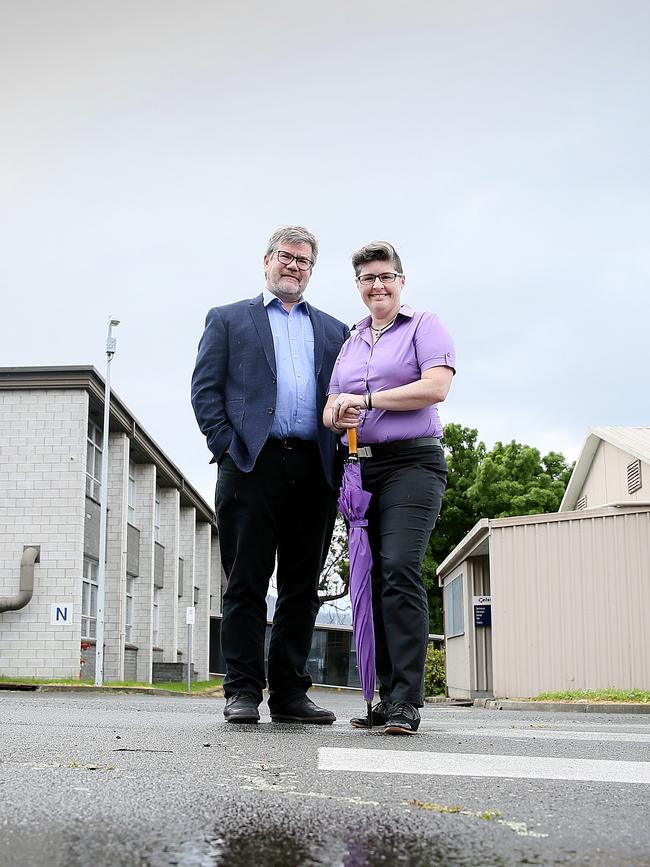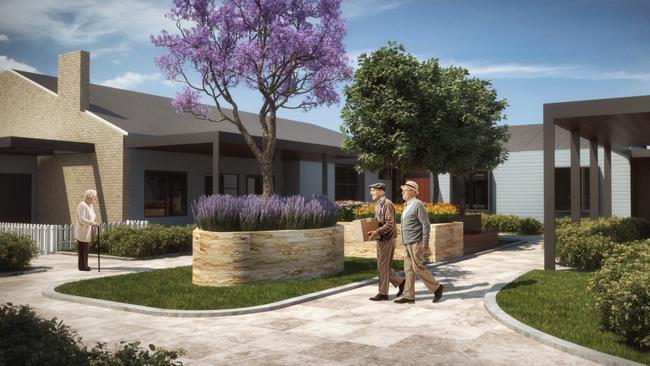Future Tasmania: State well placed to lead way on dementia care and research with Wicking Dementia Centre and Korongee Village
A world-leading Tasmanian centre has exceeded expectations on recruitment for its first of its kind research project.
Tasmania
Don't miss out on the headlines from Tasmania. Followed categories will be added to My News.
TASMANIA is facing crunch time in 2030, with Mercury research for the Future Tasmania series showing while our population of 20-34s will shrink by 397 people, our over-65s will grow by 13,908 between now and 2029.
Given the soaring incidence of dementia in line with extended lifespans, Tasmania’s world-class research into the disease is a really good fit for the state — as are plans for Australia’s first dementia village.
The Wicking Dementia Research and Education Centre is in the midst of undertaking the biggest dementia study of its kind in the world. The ISLAND (Island Study Linking Ageing and Neurodegenerative Disease) Project originally aimed to recruit 10,000 Tasmanians aged 50 and above.

The project aims to educate the community about modifiable factors that could potentially lower the risk of dementia.
Wicking director James Vickers said the initial response to the project had far surpassed expectations, with 12,500 people already signed up to take part.
“We’ll continue to recruit for the next few years,” Prof Vickers said.
“The program will be rolled out across a number of phases — the first is all about finding out about the people who have joined up, and they’ll do a number of surveys about their general health and background and their knowledge of dementia.
“It’s unfortunate we have such high rates of dementia in Tasmania, but it does make this a great place to do this kind of study.”
The centre is in its third phase of research, and Prof Vickers said any work beyond that would partly be dependant on funding.
MORE FUTURE TASMANIA:
OUR HOSPITALS ARE ALREADY ON LIFE SUPPORT
HEALTH SYSTEM UNABLE TO OFFER REAL CARE
HEDBERG A CUTTING EDGE FOR CREATIVES
Project RedUSe by Wicking’s Juanita Westbury was published in the Medical Journal of Australia last year, and focused on reducing the use of antipsychotics and sedatives in older people.
“We’re hoping that might grab the attention of the Commonwealth in terms of how they respond to the Royal Commission [into aged care],” Prof Vickers said.
Meanwhile, Hobart will also soon boast Australia’s first purpose-built dementia village.

Glenview Community Services chief executive Lucy O’Flaherty acquired $19 million to build the village, to be known as Korongee, in Glenorchy.
Korongee will enable Tasmanian dementia sufferers to live in a “small town” complete with streets, a supermarket, cinema, cafe, beauty salon and gardens. Construction is currently underway and the village is expected to be open by mid next year.


